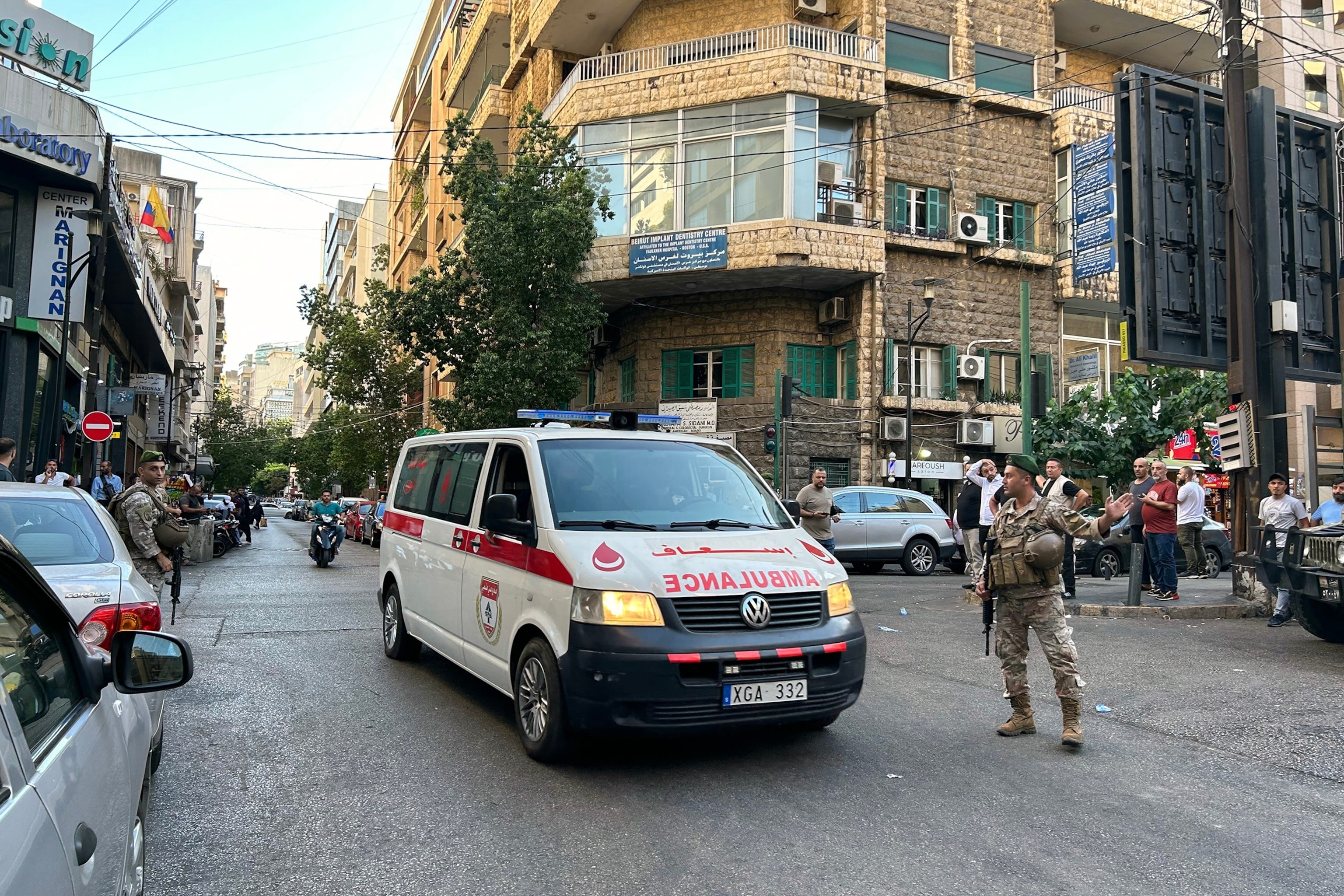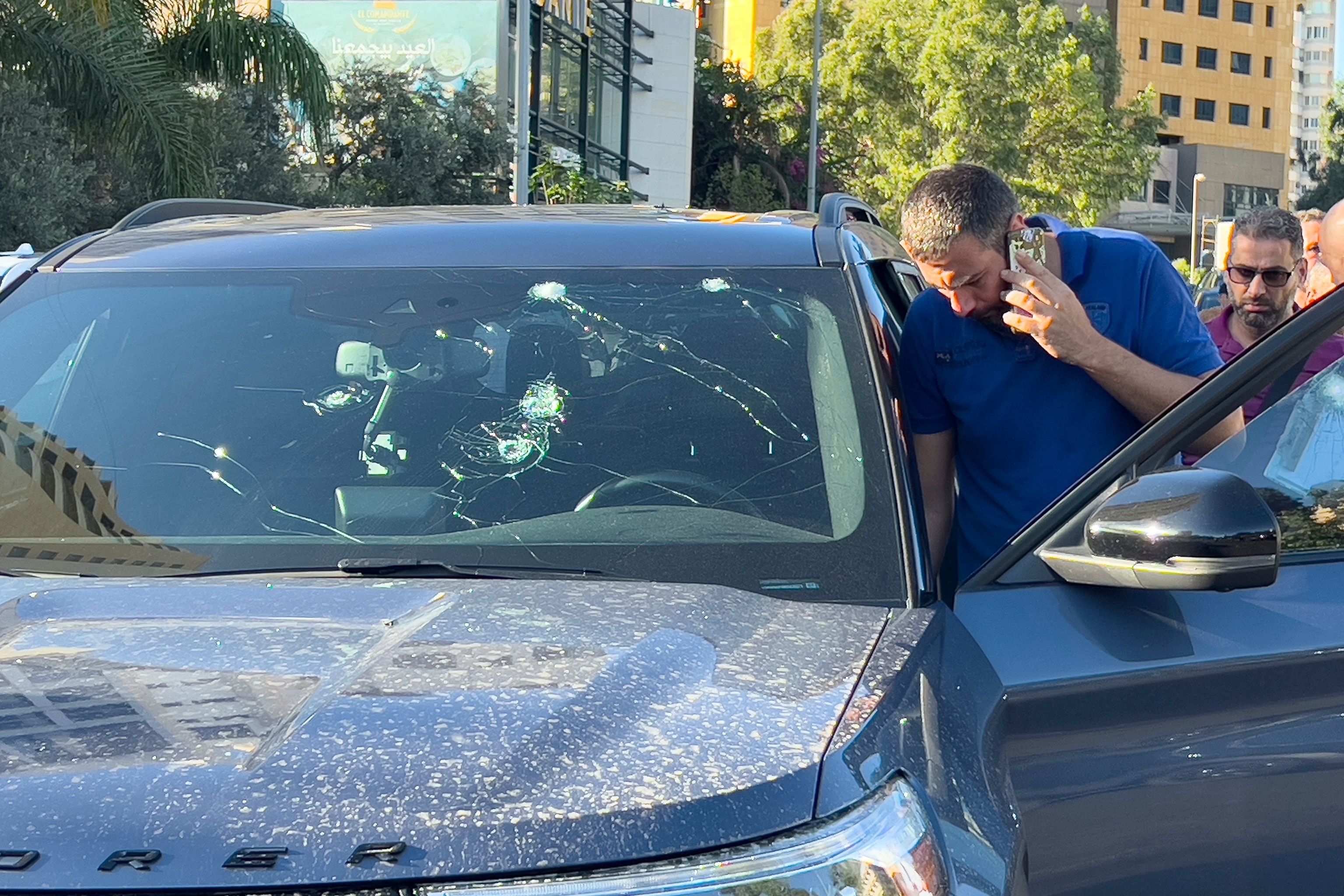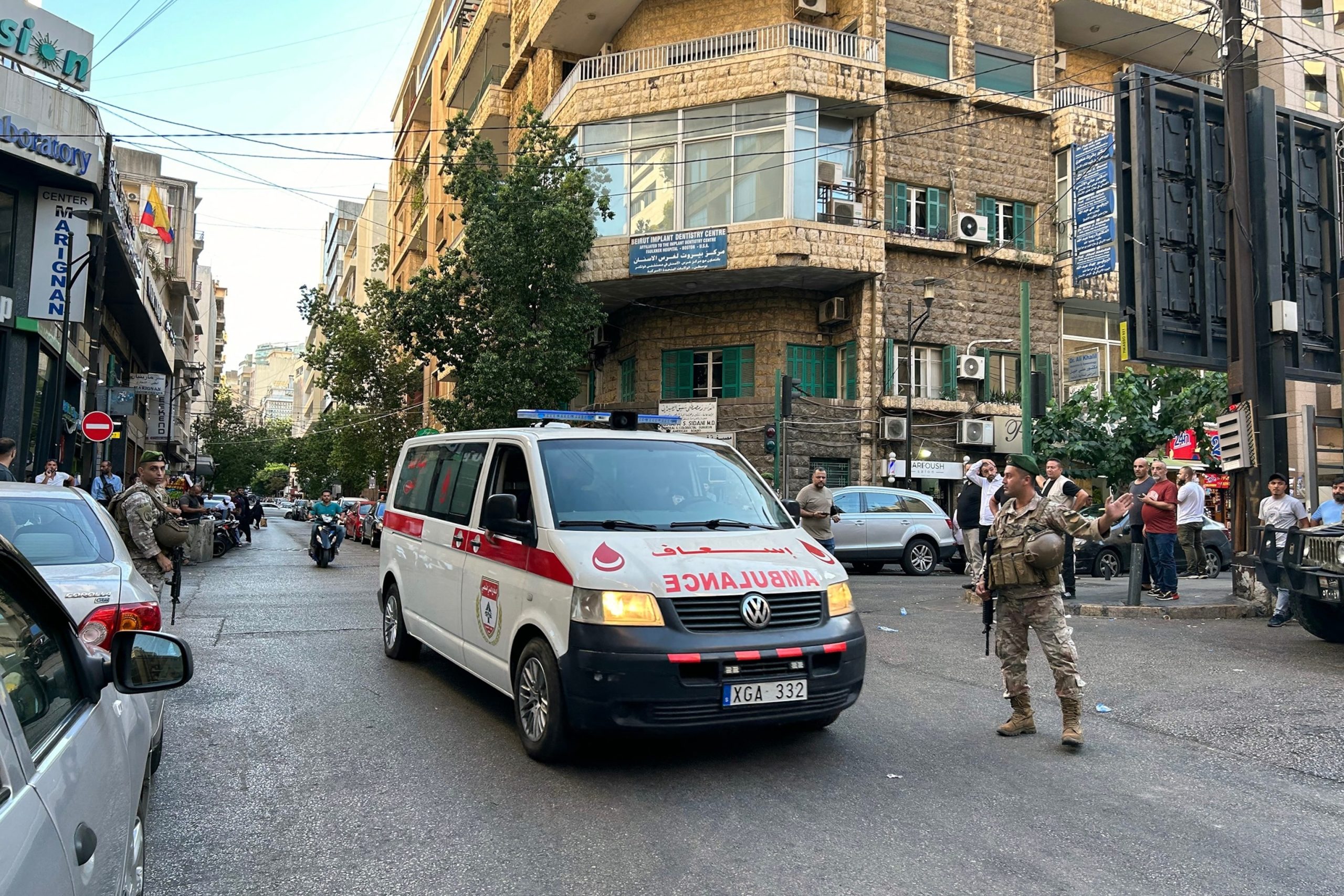LONDON — Thousands of people were injured across Lebanon and Syria on Tuesday by an Israeli covert operation that remotely detonated pagers, ABC News sources confirmed.
A source described the attack as a “huge operation” that took between six and 12 months to plan, involving the use of informants and collaborators. Explosives were implanted inside the beepers, the source added.
The attack killed at least 12 civilians — among them an 8-year-old girl and an 11-year-old boy — according to Lebanese Health Minister Firass Abiad.
At least 2,800 people were injured, Abiad said. More than 460 people underwent surgery for serious injuries, the minister added. Most victims are suffering from eye and facial injuries, while others suffered injuries to hands and fingers, he said.

An ambulance rushes wounded people to a hospital in Beirut on September 17, 2024, after explosions hit locations in several Hezbollah strongholds around Lebanon amid ongoing cross-border tensions between Israel and Hezbollah fighters. Hundreds of people were wounded when Hezbollah members’ paging devices exploded simultaneously across Lebanon on September 17, in what a source close to the militant movement said was an “Israeli breach” of its communications. (Photo by Anwar AMRO / AFP) (Photo by ANWAR AMRO/AFP via Getty Images)
Anwar Amro/AFP via Getty Images
The Hezbollah militant group confirmed that 11 of its members were killed on Tuesday, though did not specify the manner of their deaths.
At least 14 people were also injured in targeted attacks on Hezbollah members in Syria, according to the Syrian Ministry of Foreign Affairs.
Hezbollah vowed a “reckoning” for Israel. Leader Hassan Nasrallah is due to speak on the situation on Thursday afternoon.
The pagers began exploding around 3:30 p.m. local time, according to Hezbollah officials. An intelligence source familiar with the situation told ABC News that Israel has long been working to perfect this type of “supply chain interdiction attack.”
Responding to media reports that the explosives were concealed inside its AR-924 pager model, Taiwan-based beeper maker Gold Apollo told ABC News it was not responsible for the design or manufacture of the item.
“According to the cooperation agreement, we authorize BAC to use our brand trademark for product sales in designated regions, but the design and manufacturing of the products are solely the responsibility of BAC,” they said.
ABC News has contacted BAC for comment. The company is based in Budapest, Hungary.

Police officers inspect a car inside of which a hand-held pager exploded, Beirut, Lebanon, Tuesday, Sept. 17, 2024. (AP Photo/Hussein Malla)
Hussein Malla/AP
The Lebanese Council of Ministers collectively condemned “this criminal Israeli aggression, which constitutes a serious violation of Lebanese sovereignty and a crime by all standards.”
It added that “the government immediately began making all necessary contacts with the countries concerned and the United Nations to place it before its responsibilities regarding this continuing crime.”
The United Nations special coordinator for Lebanon called the operation an “extremely concerning escalation in what is an already unacceptably volatile context,” in a statement released by the U.N. Office of the Spokesperson for the Secretary General.
U.S. officials said Washington, D.C., had no role in — or pre-knowledge of — the attack. State Department spokesperson Matthew Miller told journalists on Tuesday that the administration was “gathering information” on the incident.
The U.S. and the European Union have both designated the Hezbollah militant group a foreign terrorist organization.
This is a developing story. Please check back for updates.
ABC News’ Morgan Winsor, Joe Simonetti, Jordana Miller, Ghazi Balkiz and Helena Skinner contributed to this report.
In recent months, there have been reports of exploding pagers in Lebanon and Syria, causing concern among residents and authorities. While the exact cause of these incidents is still under investigation, there are some important facts to keep in mind.
First and foremost, it is crucial to understand that pagers are not inherently dangerous devices. Pagers, also known as beepers, are simple communication devices that receive messages via radio signals. They have been used for decades as a reliable way to send short messages to individuals who may not have access to a phone or internet.
The recent incidents of exploding pagers are believed to be isolated cases and not indicative of a widespread problem. Authorities in both Lebanon and Syria are working to determine the cause of these explosions and ensure the safety of the public.
One possible explanation for the exploding pagers could be faulty batteries or improper handling of the devices. Like any electronic device, pagers can malfunction if not used properly or if they are exposed to extreme temperatures or physical damage.
It is important for users of pagers to follow the manufacturer’s instructions for proper use and maintenance of the device. This includes regularly checking the battery and ensuring that the pager is not damaged or exposed to water or other harmful substances.
In the meantime, authorities are urging residents to exercise caution when using pagers and report any suspicious activity or incidents involving the devices. It is also recommended to avoid purchasing cheap or counterfeit pagers from unreliable sources, as these may pose a higher risk of malfunction or explosion.
Overall, while the incidents of exploding pagers in Lebanon and Syria are concerning, it is important to remember that these are isolated cases and not a widespread issue. By following proper safety precautions and staying informed, residents can continue to use pagers as a reliable means of communication without fear of harm.



